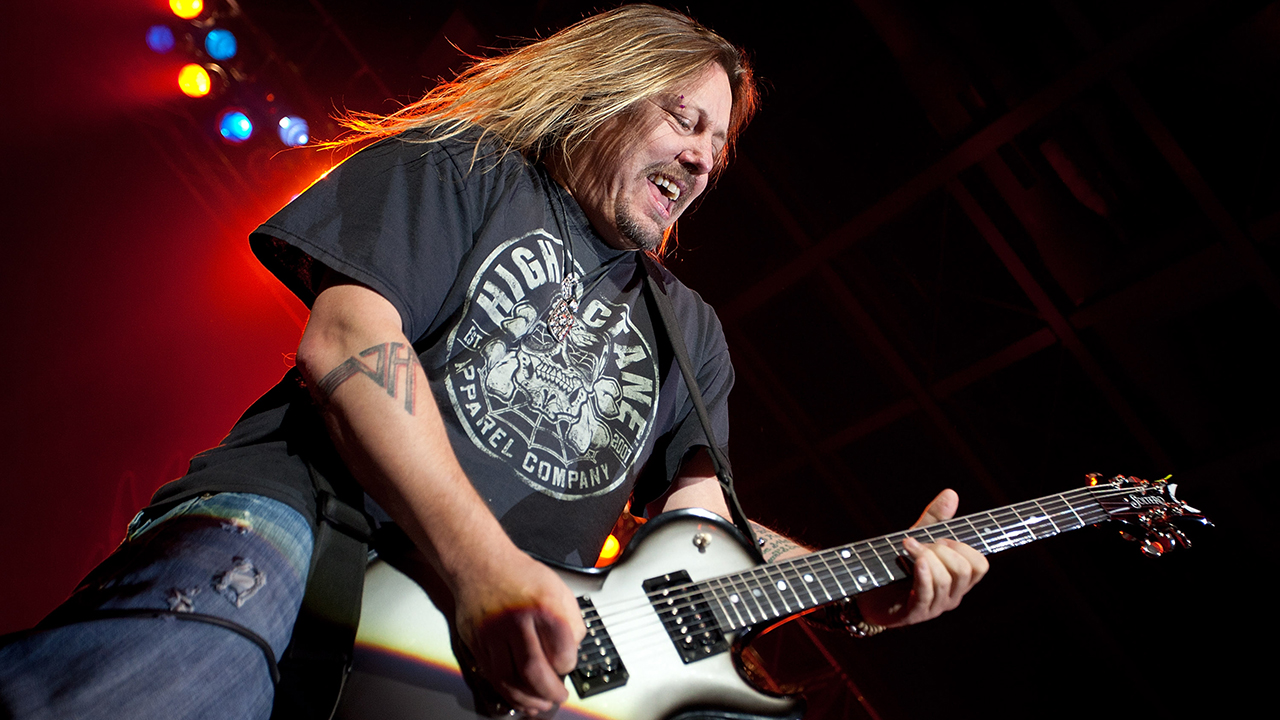Interview: George Thorogood Discusses His New Album, '2120 South Michigan Ave.'
All the latest guitar news, interviews, lessons, reviews, deals and more, direct to your inbox!
You are now subscribed
Your newsletter sign-up was successful
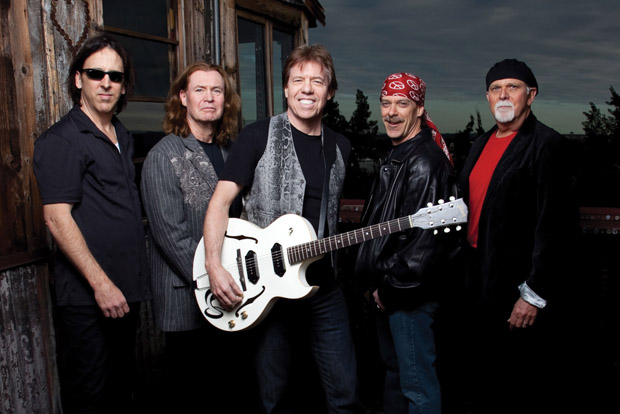
Bad!
That was George Thorogood's quick response to my not-very-well-thought-out conversation starter, "How are you?"
But the retort -- the perfect reply from a man whose biggest hit was "Bad to the Bone" -- also was perfectly ironic since Thorogood is excited about his new album with The Destroyers, 2120 South Michigan Ave., which came out July 12 on Capitol Records.
The disc, which pays tribute to Thorogood's Chess Records idols -- including Buddy Guy, Willie Dixon, Muddy Waters, Howlin' Wolf and Chuck Berry -- features appearances by Guy and Charlie Musselwhite. It also features his longtime band, Jeff Simon (drums), Bill Blough (bass), Jim Suhler (guitar) and Buddy Leach (saxophone).
Guitar World recently caught up with Thorogood to discuss the Gibson ES-125, open tunings and the inspiration behind the new album.
GUITAR WORLD: The new album is a tribute to your Chess Records heroes. How did the idea come about?
I was lying around backstage at the House of Blues thinking of an idea for a record. Then my manager came in and said, "Well, Capitol's got an idea for you." I got up off the couch and said, "Capitol? Talk to me." How does that sound?
All the latest guitar news, interviews, lessons, reviews, deals and more, direct to your inbox!
That sounds pretty good to me.
Yeah, that’s what got me interested in it.
How’d you go about choosing the songs – or at least the particular Chess Records artists – to cover?
Capital picked out most of the tunes. I enjoyed listening to Little Walter, and I enjoyed listening to Muddy Waters, but the three who really knocked me out were Howlin' Wolf, Chuck Berry and Bo Diddley. They were the three big ones for me -- but you gotta have more than three songs, you know what I mean?
I particularly like what you did with “Seventh Son.”
I can't for the life of me understand how Elvis Presley missed that tune. I mean he would have torn that thing to pieces, don't you think? That would've been perfect for his style. I bet Johnny Rivers is thanking his lucky stars Elvis didn't cut that. I mean “Seventh Son” is what got Johnny going.
It's poetic that Buddy Guy plays guitar on your version of “High Heel Sneakers” because he and Junior Wells recorded that song for Chess a while back.
I didn't know that until we were almost done recording. I heard him do it live in 1977 in Texas. He led off with it, and it was like listening to Wilson Pickett play with Jimi Hendrix. I was like, "My god, that's the greatest thing." I've never forgotten that. And then when I looked it up, I found out “High Heel Sneakers” was on Chess even before Buddy did it.
I always thought of it as more of a Danny & The Juniors type of song, or Sha Na Na or something, and I was so wrong, because I listened to the original and it was like an adult thing. It had a spooky organ in it. And then I found out later that Buddy Guy and Junior Wells cut it as a single in 1961 or something. I also heard Tom Jones do it live. So I said, this could be a tune. I was actually thinking of doing it before this session came up, so that worked out.
I think Johnny Cash and Carl Perkins did it live together, too.
I gotta hear that. I also heard that Dion did a great version of “Spoonful,” which I gotta hear. It's supposed to be really heavy.
What was it like to record with Buddy -- and with Charlie Musselwhite?
I wouldn't know. They weren't there when I did it. They overdubbed their stuff. But I’ve worked with them before. I’ve done a lot of live shows with Buddy, and I worked a couple of things with Charlie. So they were natural choices for these particular tunes.
After all these George Thorogood and the Destroyers albums -- because I think this is your 16th --
Sixteen?!
I think so, yeah.
Ain't that enough?
How do you keep the music fresh and new?
Well, even before we did the Haircut album in '93, I thought recording was done for me, but we kept getting offers, saying, “We want another album.” And I'd say OK. Then they'd say, "We want two more albums." I don't have enough material for two albums. I barely have enough for one. And then I do these old blues covers, and then the label goes, "Oh, we don't want this stuff. We want hits." And I'm like, "This is all I know how to do."
So finally, we turned around and then Capitol came. And all the years I've been saying, "Look, this is all I know how to do. Don't call me anymore." Then they call me up and said, "No, this is what we want you to do." After all this time.
When I think of George Thorogood, I think of the single-cutaway Gibson ES-125 with two P90 pickups.
Yeah, that's me, the single cutaway. It's great. I recently got a book on the history of the electric guitar, and it had all these guitars and players in it. Guess which guitar wasn't in the book.
The ES-125?
That’s right. And I would've been in it, because I’m the only one who plays it!
Sounds personal!
Yeah, it is. They're just trying to keep Thorogood out of the limelight [laughs].
What are some of the vintages on your 125s? From what I’ve heard, you have a bunch.
I get as many as I can get my hands on, yes. They started making them around '57 and stopped making them in 1970. I don't really know what the exact years were, but I got as many of them as I could.
Is there one that stands out as your favorite?
The first one I got -– I lucked out with that one. It was like buying a Ford Fairlane or a Chevy Nova. It was just incredibly great. And I thought they were all going to be like that. Well, it's not true -- just like cars, guitars or anything else. You buy one, thinking it's going to be great, like a pair of Levi’s. You buy them and you go, "These fit good," and you put the other ones on and go, "These don't feel good."
Actually, I have two favorites, a white one and a black one. I nicknamed them Black Tooth and White Fang, after the Soupy Sales show.
Discuss your open tunings.
I use open G and open D. If I go any higher, I usually put a clamp on it. I don't like doing that. Tuning it down gives you a thicker, fuller sound. That’s what Jimi Hendrix did. He tuned it down half a step, and so he got that real fat sound, but it's hard to keep it in tune that way. Especially the way Hendrix bent the notes. But I prefer tuning down, plus I have a low voice, so it worked better for me when I was starting.
Bonnie Raitt plays an open A, John Hammond plays an A and E, and he breaks a lot of strings. The tension is tight. So I tune it down. Sometimes it'll go a little flat, a little out of tune, but we have back-up guitars to change with. But those are my tunings.
What effects did you use on your famous “Bad to the Bone” riff, which I heard on a TV commercial just this morning?
I had no effects. The effects are all in my hands. Most of the greats, that's how they played. That's how they get the effects. Hendrix only used volume. Elvin Bishop and B.B. King, they alter things just with their hands. I always thought that was very cool. They don't rely on a lot of phonies or gimmicks, just mechanics.
We'll be speaking to Elvin Bishop soon, actually.
Well, tell him I said hi! Tell him I really respect Elvin. He'll understand -- that he owes his entire career to me [laughs].
You were very much into softball at one point. Is that still true?
No. I went from second base to first base to first base coach in like a year. I’m in the booth now. They put me in the booth.
What's your favorite baseball team?
I'm a Mets fan. There aren’t many of us, but you know, that's me.
George Thorogood's new album, 2120 South Michigan Ave., comes out July 12 on Capitol Records.
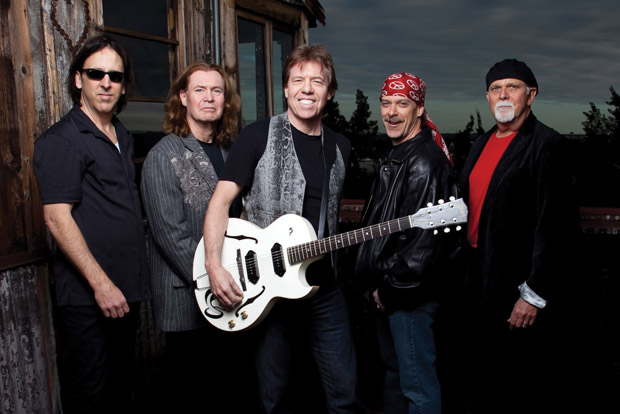
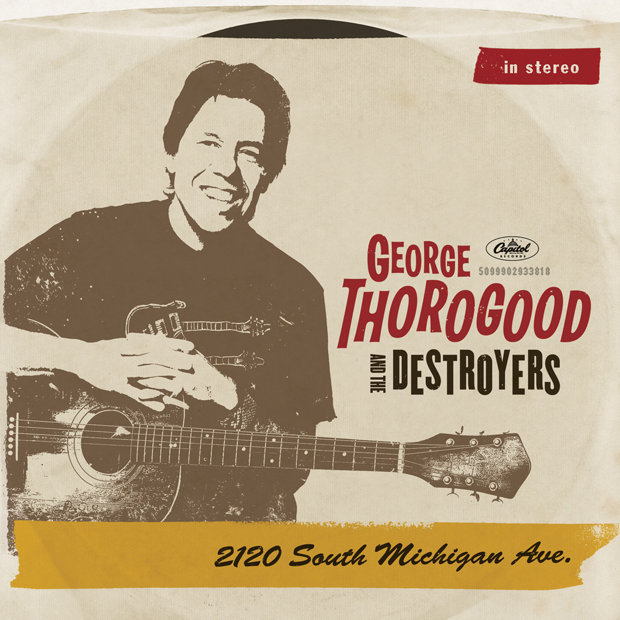
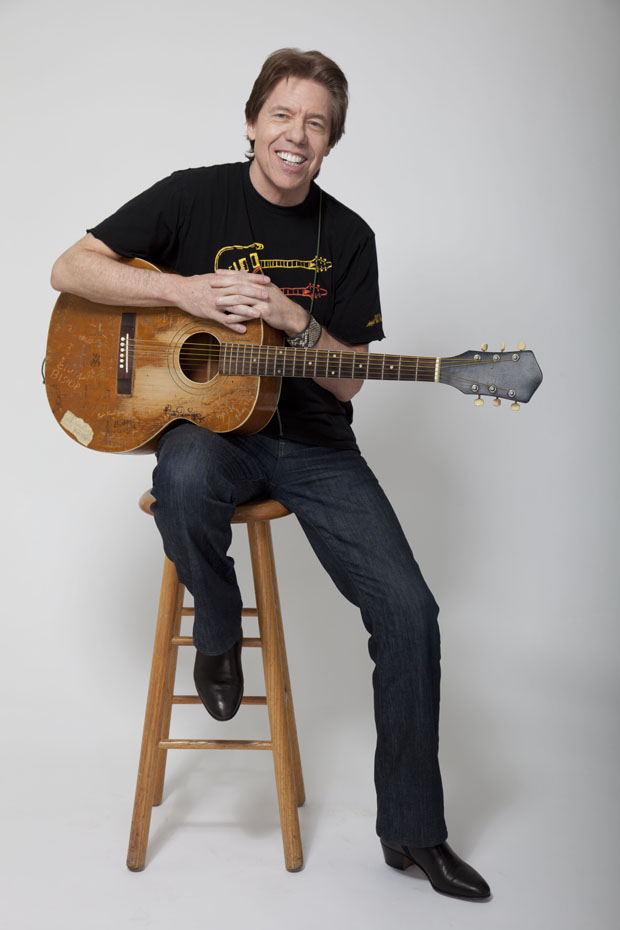

Damian is Editor-in-Chief of Guitar World magazine. In past lives, he was GW’s managing editor and online managing editor. He's written liner notes for major-label releases, including Stevie Ray Vaughan's 'The Complete Epic Recordings Collection' (Sony Legacy) and has interviewed everyone from Yngwie Malmsteen to Kevin Bacon (with a few memorable Eric Clapton chats thrown into the mix). Damian, a former member of Brooklyn's The Gas House Gorillas, was the sole guitarist in Mister Neutron, a trio that toured the U.S. and released three albums. He now plays in two NYC-area bands.
